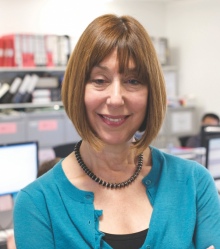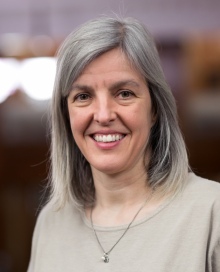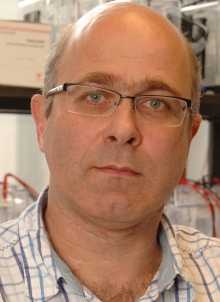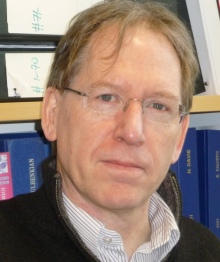Five Imperial researchers elected Fellows of the Academy of Medical Sciences
by Sam Wong

Five Imperial researchers have been recognised for their work in medical science by election to the Fellowship of the Academy of Medical Sciences.
Academy Fellows are elected for excellence in medical research, for innovative application of scientific knowledge or for their conspicuous service to healthcare.
Professors Wendy Atkin, Christl Donnelly, Jorge Ferrer, Michael Way and Martin Wilkins are among 44 new Fellows elected this year. The new Fellows will be formally admitted to the Academy at a ceremony on Wednesday 1 July 2015.
Professor Wendy Atkin
 Wendy Atkin is Professor of Gastrointestinal Epidemiology in the Department of Surgery and Cancer. Her research focuses on identifying and testing methods for the early diagnosis of bowel cancer, pathways for the development of the disease, and surveillance of people at increased risk, with the ultimate aim of reducing bowel cancer incidence of and mortality. Her research provided the evidence for a new national bowel screening programme, which is currently being rolled out across England.
Wendy Atkin is Professor of Gastrointestinal Epidemiology in the Department of Surgery and Cancer. Her research focuses on identifying and testing methods for the early diagnosis of bowel cancer, pathways for the development of the disease, and surveillance of people at increased risk, with the ultimate aim of reducing bowel cancer incidence of and mortality. Her research provided the evidence for a new national bowel screening programme, which is currently being rolled out across England.
“I am delighted and honoured to be awarded this prestigious Fellowship,” she said. “It is a tribute to the dedication and hard work of current and past colleagues, to whom I owe a huge debt of gratitude. I look forward to joining other Fellows in furthering the goals of the Academy in nurturing and developing the next generation of medical scientists. It will also provide a fertile environment to develop future collaborations.”
Professor Christl Donnelly
 Christl Donnelly is Professor of Statistical Epidemiology in the MRC Centre for Outbreak Analysis and Modelling within the School of Public Health. Her research focuses on analysing the fundamental properties driving the spread of diseases through populations. This is particularly crucial in the study of outbreaks, where a new disease or a new setting for a familiar disease leads to uncontrolled spread. Her research is situated where scientific investigation meets public and animal health.
Christl Donnelly is Professor of Statistical Epidemiology in the MRC Centre for Outbreak Analysis and Modelling within the School of Public Health. Her research focuses on analysing the fundamental properties driving the spread of diseases through populations. This is particularly crucial in the study of outbreaks, where a new disease or a new setting for a familiar disease leads to uncontrolled spread. Her research is situated where scientific investigation meets public and animal health.
“I am so pleased to receive this honour from the Academy,” she said. “As an active promoter of gender equality of opportunities in science and medicine, I am happy to see the work of so many women being recognised by the Academy.”
Professor Jorge Ferrer
 Professor Jorge Ferrer is Head of the Epigenomics and Disease Section in the Department of Medicine, and Leader of the NIHR Imperial BRC Genetics and Genomics Theme. His research has focused on understanding the genomic instructions that are used to generate functional insulin-producing cells in the pancreas. He has discovered genetic mechanisms that underlie different forms of human diabetes, and made key contributions to the field of pancreas regeneration.
Professor Jorge Ferrer is Head of the Epigenomics and Disease Section in the Department of Medicine, and Leader of the NIHR Imperial BRC Genetics and Genomics Theme. His research has focused on understanding the genomic instructions that are used to generate functional insulin-producing cells in the pancreas. He has discovered genetic mechanisms that underlie different forms of human diabetes, and made key contributions to the field of pancreas regeneration.
“I feel honoured and thankful for being welcomed by the British scientific community,” he said. “This election recognises many years of work by a whole team of students, postdocs and collaborators.”
PROFESSOR MICHAEL WAY
 Michael Way is Professor of Virology in the Department of Medicine and a Senior Scientist at the Francis Crick Institute. He pioneered the use of vaccinia virus as a model system to study the cytoskeleton – a network of proteins that provide structural support and move components inside cells. His work has led to a clearer understanding of how viruses manipulate and use the signalling networks and cytoskeleton of their unwilling hosts to enhance their spread. His discoveries have provided important insights, not only into the mechanisms regulating the spread of infection, but also on the role of signalling and cytoskeletal function during a wide variety of fundamental cellular processes.
Michael Way is Professor of Virology in the Department of Medicine and a Senior Scientist at the Francis Crick Institute. He pioneered the use of vaccinia virus as a model system to study the cytoskeleton – a network of proteins that provide structural support and move components inside cells. His work has led to a clearer understanding of how viruses manipulate and use the signalling networks and cytoskeleton of their unwilling hosts to enhance their spread. His discoveries have provided important insights, not only into the mechanisms regulating the spread of infection, but also on the role of signalling and cytoskeletal function during a wide variety of fundamental cellular processes.
“I feel honoured to be elected to the Academy of Medical Sciences,” he said. “I would especially like to thank all the students, postdocs and technicians that have been in my lab who have made this possible through their hard work, as well as the support of Cancer Research UK.”
Professor Martin Wilkins
 Martin R. Wilkins is Professor of Clinical Pharmacology and Head of the Department of Medicine, a role he combines with Director of the National Institute for Health Research / Wellcome Trust Imperial Clinical Research Facility based at the Hammersmith campus.
Martin R. Wilkins is Professor of Clinical Pharmacology and Head of the Department of Medicine, a role he combines with Director of the National Institute for Health Research / Wellcome Trust Imperial Clinical Research Facility based at the Hammersmith campus.
His primary research interest is in proof-of-concept studies in humans, examining new treatments. His research embraces the challenges of developing new treatments from the laboratory to the clinic, focusing on pulmonary hypertension – high blood pressure in the arteries supplying the lungs.. His work has contributed to the development of phosphodiesterase inhibitors and soluble guanylate cyclase stimulators as treatments for pulmonary hypertension. He is currently using the tools of experimental medicine - genetics, proteomics, metabolomics and imaging - to study a cohort of patients with the condition, with the aim of identifying markers that assist diagnosis, select new drug targets and assess response to treatment.
Article supporters
Article text (excluding photos or graphics) © Imperial College London.
Photos and graphics subject to third party copyright used with permission or © Imperial College London.
Reporter
Sam Wong
School of Professional Development